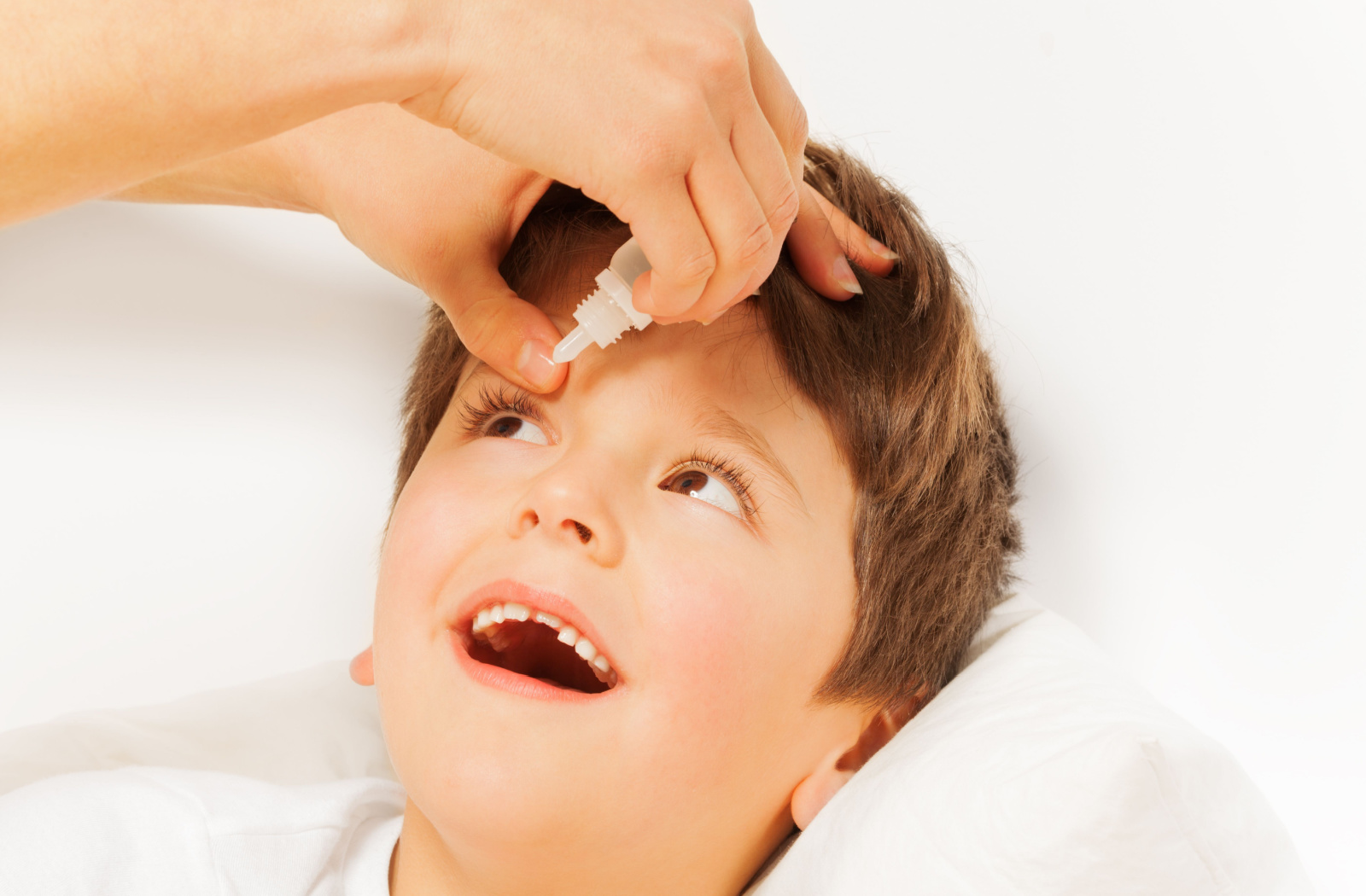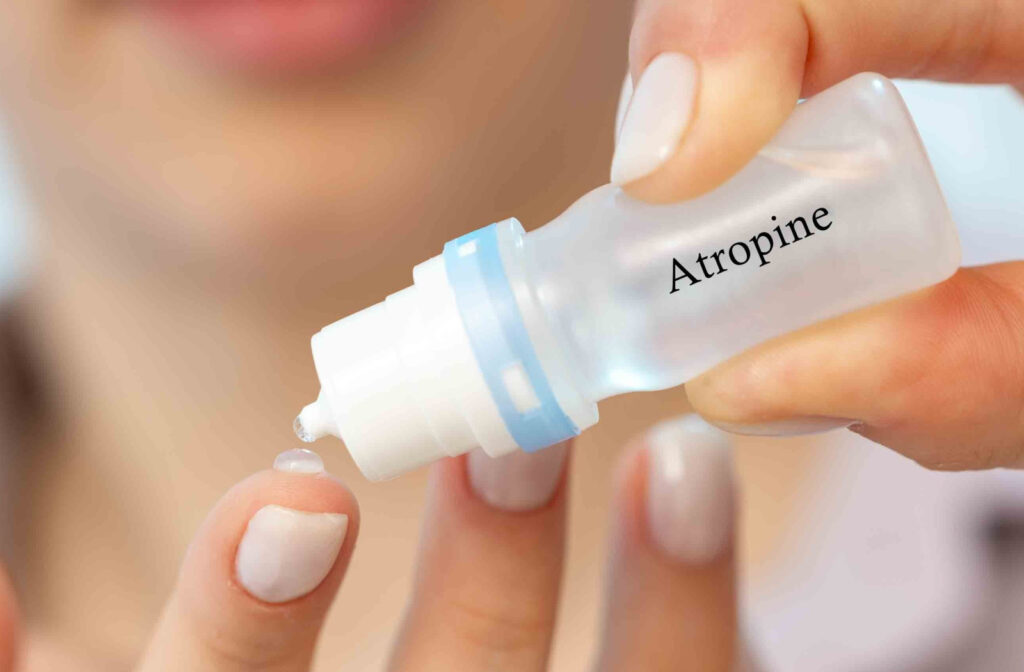Myopia, also known as nearsightedness, is a common vision condition that affects many people. It usually starts in childhood and is caused by the elongation of the eyeball, leading to difficulty seeing objects at a distance. Nowadays, there are several ways to manage myopia, and atropine eye drops are a popular method for slowing myopia progression in children.
When used consistently, atropine eye drops can help slow the growth of the eyeball, preventing it from elongating too dramatically and causing worsening blurry vision.
Children’s eye health is just as important as adult eye health, and knowing about your family’s options for myopia management can help you provide the support your child may need for their eyes. We can help you learn more about myopia management, atropine eye drops, and how they may be a suitable option for your child.
Understanding Myopia Progression
Myopia, also known as nearsightedness, develops when the light entering the eye falls short of the retina, causing images of distant objects to become blurry while near vision stays sharp. The underlying cause is often the shape of the eye, and myopia can become gradually worse as the eyeball grows longer.
Those who enter adulthood with high myopia often require a strong prescription and are at an elevated risk of developing several eye conditions, such as glaucoma, cataracts, myopic macular degeneration, and retinal detachment.
How Does Atropine Work for Myopia Progression?
Several studies have shown the effectiveness of atropine eye drops in slowing myopia progression. Researchers are finding that lower doses of atropine drops, from 0.01–0.05%, can effectively slow myopia progression with few side effects. But how does atropine do it?
To understand how atropine eye drops can help control myopia, we must first understand their mechanisms of action.
Pupil Dilation
Initially, eye care professionals thought atropine worked for myopia control simply by dilating the pupils. During an eye examination, your optometrist may use special eye drops to dilate your pupils, allowing them to see inside your eyes more easily. Atropine works similarly by enlarging the pupil, allowing more light to enter the eye.
Dilation of the pupils is common with 1% atropine, but this concentration can make the eyes significantly more sensitive to light and can cause blurry vision. Because of these side effects, myopia management typically uses a smaller concentration of atropine, which results in less pupil dilation.
Continued research into the use of low-dose atropine has shown there are other interactions beyond pupil dilation that may also contribute to reduced myopia progression.
Inhibition of Muscarinic Receptors
Atropine can block something in the eye called muscarinic receptors, which are responsible for controlling the contraction and relaxation of the eye muscles. By inhibiting these receptors, atropine can help reduce the strain myopia places on the eyes, which can help to slow down the progressive nature of myopia by controlling the growth of the eye.
Modulating Neurotransmitters
Neurotransmitters are chemicals that help send signals between nerve cells. Dopamine is a neurotransmitter we often associate with the brain’s reward system, but there is also evidence that dopamine may play a role in regulating eye growth.
Atropine can also work for myopia management by increasing dopamine. With more dopamine, the eye can’t grow too much, which can help reduce myopia progression. This can provide a significant benefit for some myopia management plans.

Potential Side Effects
With any medication, there is always a risk of side effects. However, with the concentrations used for myopia control being so low, the side effects of atropine eye drops for myopia management tend to be very minimal.
That said, if you do notice any changes in your child’s mood, they complain of increased light sensitivity, or they develop a headache associated with atropine eye drop use, you should let your doctor at Specialty Eye know right away.
Other Forms of Myopia Management
Atropine eye drops are not your only option for slowing the progression of myopia, and at Specialty Eye, we can help you and your child find a solution for myopia management that suits your child’s needs.
Some of the other myopia control strategies we recommend include ortho-k (orthokeratology), a treatment method that involves the use of specialty contact lenses that, when worn overnight, can slow myopia progression over time and provide clear vision throughout the day.
Other soft multifocal contact lenses may also be helpful for controlling your child’s myopia. Ultimately, finding the right solution for myopia can depend on individual eye health. When you visit us, we can use our experience and expertise to provide specific treatment recommendations and support for your child’s unique eyes.
Manage Myopia Early
Atropine eye drops can effectively control myopia in kids, and there are several other solutions that can help as well. Our doctors at Specialty Eye can help guide you in selecting the right treatment option for your child based on individual needs and preferences.
Some lifestyle changes and habits, such as outdoor activities and limiting screen time, can also help reduce myopia progression. By staying educated and informed, you can take proactive measures to preserve your child’s vision and help them see a bright future.
Book an appointment with us today to speak with us more about atropine, myopia management, and your child’s options for seeing clearly now and in the future.




